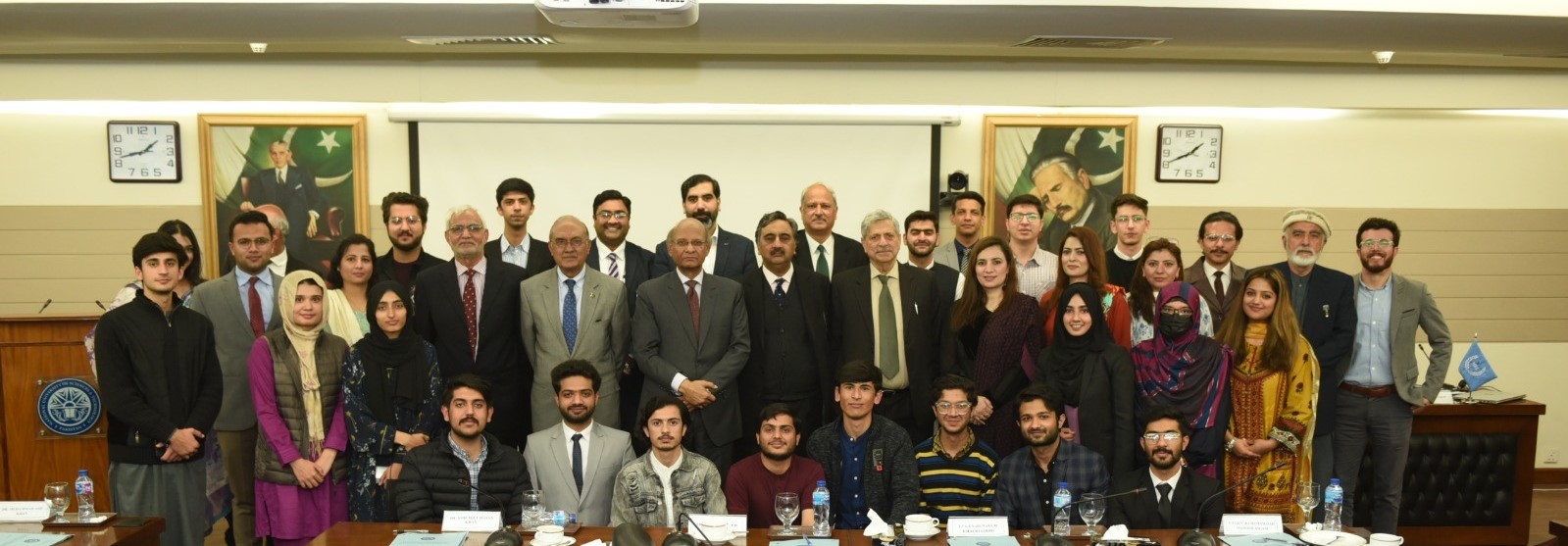Constitution of Pakistan
-Share this story:
Islamabad February 28, 2023 – The NUST Institute of Policy Studies (NIPS) organized the seminar on ‘’Constitution of Pakistan’’ on Tuesday, February 28, 2023. The seminar was moderated by Mr. Amir Yaqub, Director, NIPS and was attended by veteran statesmen, experts from academia, legal experts, researchers, and students. The seminar was held as part of NIPS Seminar Series – 2023.
Mr. Hamid Khan, a Senior Advocate at the Supreme Court of Pakistan, delivered a lecture on the “Evolutionary Process of the Constitution of Pakistan.” During his speech, he emphasized the importance of taking lessons from history and stressed that the constitution and politics cannot be studied independently, as they are inseparable from political development.
Mr. Khan provided valuable insights into the Constitution of 1956, which he deemed to be a well-balanced constitution. According to him, it briefly summarized fundamental rights, democracy, general electorate, and judicial freedom. By highlighting the significance of constitution and democracy, Mr. Khan underscored the importance of learning from our past and drawing on it to improve our present.
Mr. Ahmer Bilal Soofi, a well-known former Federal Minister for Law, Justice & Parliamentary Affairs and currently a Senior Advocate at the Supreme Court of Pakistan, delivered an insightful talk on the “Constitution of Pakistan and International Law.” During his talk, he focused on the nature of the constitution and highlighted the major challenge of accommodating diversity while maintaining a balance between religion and modernism.
Mr. Soofi discussed that the basic essence of democracy is to counter the majoritarian balance. He further added that any constitution which deals with the diversity of societies must guarantee the fundamental rights. Moreover, he stressed the significance of international law and noted that Quaid-i-Azam himself was a jurisconsult par excellence that included the mastery of international law. Mr. Soofi highlighted the link between Islam and international law, noting that Islam is a religion of covenant. Therefore, legislative principles must be considered as covenants that must be implemented.
The seminar was followed by a stimulating interactive discussion with veteran statesmen and students from NUST’s Department of Law.
In the closing remarks, Mr. Amir Yaqub stressed the basic duties of being a Pakistani citizen, and thanked honorable speakers and participants for their active contributions in the discussion session.




